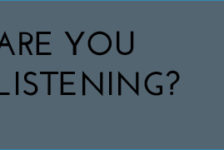
Alaa Al-Barkawi, a senior English and sociology major is a Muslim refugee from Iraq whose family will be affected by Trump’s temporary ban on refugees and Muslims from seven Muslim-majority countries. Forum file photo from August 2016 by Taylor Stevens
This past week has been an emotional rollercoaster for me as a Muslim, a Hijabi, a refugee and an Iraqi.
The weekend started off with Trump signing an executive order to temporarily ban refugees and Muslims from seven Muslim-majority countries including Iraq, Syria, Somalia, Sudan, Libya, Yemen and Iran. Six of these seven countries are fighting terror in their homelands on a daily basis.
Barely a day after the executive order was signed, a mosque in Texas was burned to the ground.
The weekend finished up with a mass shooting in Quebec, Canada. Six Muslims were killed by a white supremacist who was an avid supporter of Trump and his bigotry.
I am not surprised that Trump delivered on his promise to ban Muslims. I’m a first-generation Iraqi immigrant living in a post-9/11 world. I grew up in a country where the word Muslim was the equivalent to the word “monster.” I grew up believing that many American people feared and even hated my culture, my native tongue (Arabic), my national origin and the headscarf my mother wore when she took me to school. I grew up being called “un-American,” “alien,” “terrorist” and a “towel head.”
The Muslim ban does not surprise me. Rather, this ban is an appendage of white nativism—an extension toward the “precautions” needed to successfully alienate an entire group of people indefinitely. A Muslim ban only makes sense at this point. It seems as if this new administration wants to ease Muslims and refugees into our new lives before registering us, raiding us, deporting us and maybe even detaining us in our own homeland.
I am not trying to be pessimistic when I write such things. Sure, folks have been protesting. Lawyers have been working hard without pay to free many families and individuals detained at airports. In all of this chaos, it has almost been heartwarming to see allies and communities come together, trying to protect Muslims and refugees. Muslims are even praying openly, in the middle of airports, and folks aren’t freaking out!
It’s a strange time to exist right now. To openly exist right now. But I keep asking myself, ‘Who knows how much longer before it’s not okay?’
And really, was it ever okay? I think about whether or not it’s safe to wear my hijab. To go to the grocery store. Will someone shout a slur? When my mother goes to the mosque every Saturday night, will she be safe? These are thoughts I’ve had over and over throughout my 21 years in America.
“I’ve noticed a lot of silence throughout campus on this ban. Your silence creates a normalization of these situations. If you’re quiet now, you will probably continue to be quiet.” — Ala Al-Barkawi, senior English and sociology major and Muslim refugee from Iraq
I came to this country when I was three months old. It’s the only home I have ever known. My family was once expelled from their homeland in Iraq due to failed U.S. foreign policies and interventions. Now the same country that caused us to leave wants us gone once more in a crude full circle.
It’s times like this when I question my American identity. Am I lucky to have been an American? Twenty-one years ago, my family thought they would be placed somewhere in the United Arab Emirates or Saudi Arabia, which would have been disastrous for us as a Shiites. Am I lucky that my parents barely escaped with their lives when the other half of my family wasn’t able to flee?
I have a cousin my age living in Iraq. We’re both college students. Both English majors. But we’ve grown up in practically two different worlds. Her country has been in constant war for the past few decades and my country is the one causing it.
I know it’s useless to think of who I could have been or where I could be living right now if we weren’t relocated to the U.S. However, without being relocated, without certain officials granting my family asylum into the United States, I wouldn’t be here writing to you now.
In some ways, I am grateful. In other ways, I am utterly ashamed.
The United States carries a façade of being a country of immigrants, but this is a country of indigenous genocide and stolen black bodies. This country is made for a certain kind of immigrant: a white immigrant. Because even if I tried as hard as I could to “assimilate” into this country, I could never be accepted into American life.
And what is this ban and impending wall and registry anything but an indication of that rejection? Am I allowed to be proud of a country that has bombed my homeland? That is now kicking out people who were once like me, 21 years ago?
I was recently speaking to Ban Naes, a good friend of mine who has an almost identical background as me. “Will anyone notice our absence if we’re gone?” she asked. This wasn’t to be melodramatic by any means. Rather, this is an important question that needs serious thought.
This question does not just allude to this new ban. This is a question about everything that comes after. What happens when Trump starts to target other communities, as he and his administration have promised? Will anyone notice if our undocumented students are gone? Our LGBTQ+ students? Our other students of color? Our low-income students? You may notice a friend or two gone, but in this predominately white campus, it will not directly affect the majority of you.
So what will you do? Your safety pins can’t help us when we’re gone. And your silence, as of now, is deafening.
Most students on campus don’t realize the effects that terrorist attacks in Western countries have on average Muslims or Middle Easterners. Other students never even know when attacks happen in our native homes, making us feel hopeless. Our people are being killed in our country of origin, and yet, we fear of being blamed for the terror in America, and sometimes we even feel guilty for it.
There have been many instances where I fear leaving my house and I come to campus, hoping someone will speak out and offer comfort. But almost no one ever does. It speaks volumes about our actual global perspectives at Westminster, where we are encouraged to go to developing countries and learn of their struggles and their tragedies only to come back to our privileges and comfort.
We have global perspectives when it benefits our own positions of power or offers us “comfort” in knowing that we’ve “helped” someone. But when it comes to real conversations about the dynamics of prejudice, racism and whiteness, we are often silent.
I’ve noticed a lot of silence throughout campus on this ban. Your silence creates a normalization of these situations. If you’re quiet now, you will probably continue to be quiet. And when the administration goes after more communities, you need not to ask yourself where the rest of us have gone, while you remain standing without a scratch.










Jess
This article says it all. Brilliant, Alaa. I do care, and I will not be silent.
jb9446@ma.wasertch.edu
I’m going to take an unpopular stance here, but it needs to be taken. The travel ban is affecting predominantly Muslim countries from which several terrorists have come from. If you’re trying to say that this ban perpetuates hate, you’re wrong. It is a stance on national security. The entire ideology of ISIS is to destroy the west, whereas there are only a few isolated incidents of angry "Trump supporters" attacking mosques and such. A lot of this hate is faked too. The day after election, a church claimed it had a swastika drawn on its door. Recently, it was discovered that they drew it themselves. When you say that we need to discuss the dynamics of "whiteness", you are asserting that there is an implicit attitude engrained in being white, which is racist. I find it extremely offensive when you say this country is a country of genocide and stolen black bodies, and that you shirk at the idea of being proud of a country that has bombed your homeland. You stand here, given incredible rights by that same country, and say that? You know what? The Middle East has bombed America and other western countries, or conducted other terrorist attacks against us. Why shouldn’t we be careful? If you want to see real genocide look at the Holocaust or Cambodia. No one today is to blame for the Native Americans, so don’t try it. Also, saying that you’ve been discriminated against for not assimilating should not be surprising. If people treat you slightly differently, don’t be surprised. If you demand that you don’t change a little bit to conform to western culture, don’t demand that people accept your culture without question.